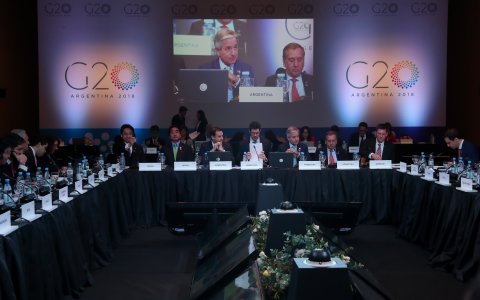World leaders underlined the need for greater female participation in the digital economy at the G20 Digital Economy Ministerial Meeting in Salta, Argentina.
During the meeting, G20 leaders issued a declaration which contains an annex with proposals to help reduce the digital gender divide.
According to estimates by the Organisation for Economic Cooperation and Development (OECD), some 250 million fewer women than men are online today. Women account for only 20 percent of graduates in careers relating to information and communication technology (ICT).
To change this scenario, the document identifies the main obstacles to female digital participation. These include lack of access, education, skills and technological literacy, and inherent gender biases and socio-cultural norms.
One of the first recommendations is for “raising awareness of the digital gender divide and the benefits that diversity offers and addressing stereotypes that hinder the full participation of women in digital transformations.”
Building capacity to improve data collection, undergoing research that focuses on identifying access gaps between women and men, tackling barriers to access, connectivity and digital skill acquisition, and addressing gender biases instilled from an early age, are some of the suggested means to tackle the imbalances.
The document also suggests collecting gender-disaggregated data to enable for evidence-based action, and promotes training in digital skills acquisition for women re-entering the labour market after extended absences, such as maternity and childcare leave. It acknowledges the importance of high quality and flexible work arrangements for its workforce that takes advantage of digital tools.
To help foster inclusion, the document encourages identifying sub-groups lagging in digital access to be able to prioritise their needs and opportunities. Tackling barriers to digital access for women living in rural areas, for example, is considered a priority.
Another proposal puts emphasis on supporting female digital businesses and strengthening female students’ interest and participation in STEM careers and digitally intensive sectors through training, scholarships, awards and prizes. The document also calls on G20 countries to “address cyber-violence towards girls and women to provide them a trusted online environment.”
Finally, the document encourages the effective use of digital technologies that allow women to learn from each other, as well as joint initiatives among G20 countries “to empower girls and women in the digital era.”





